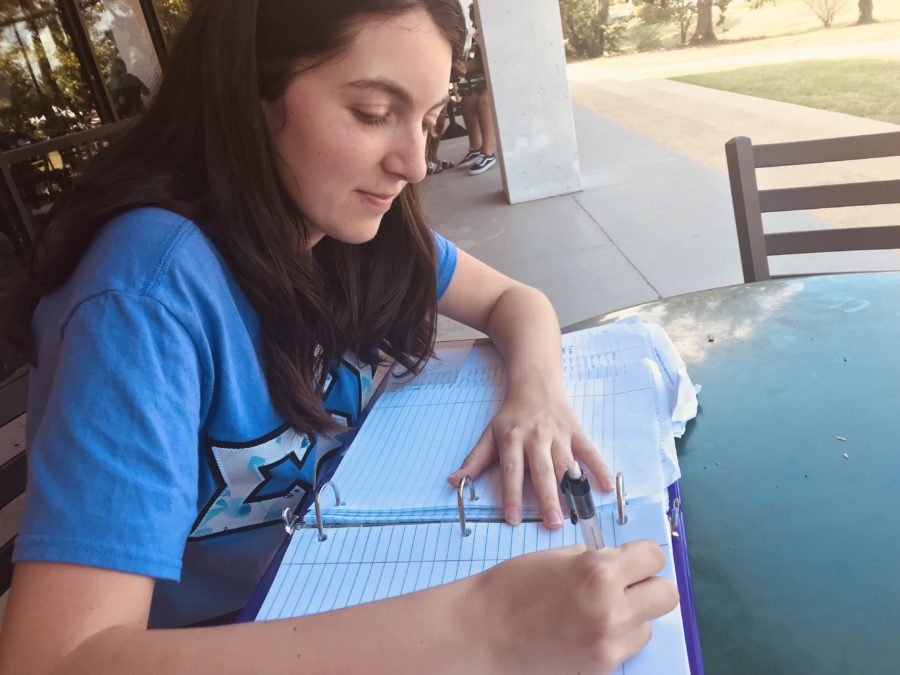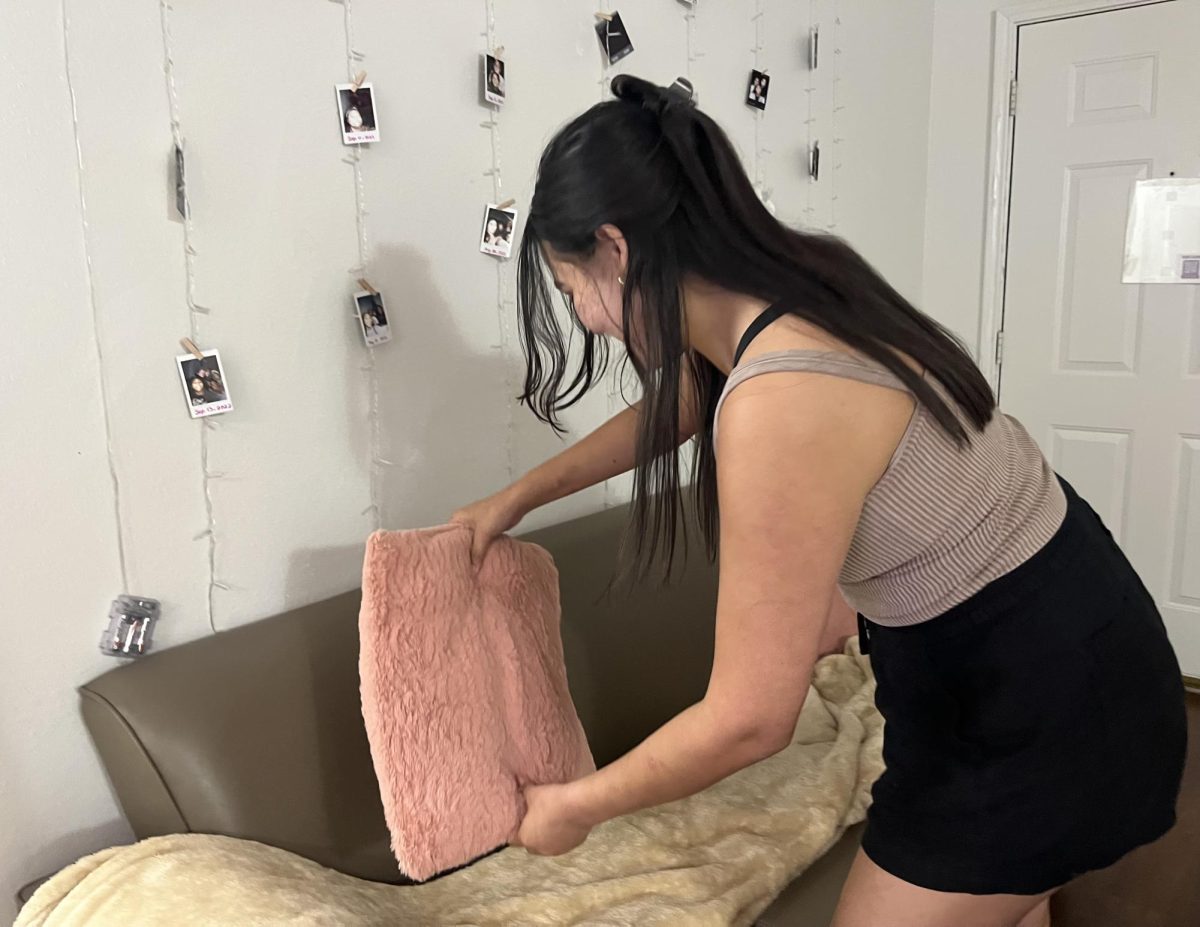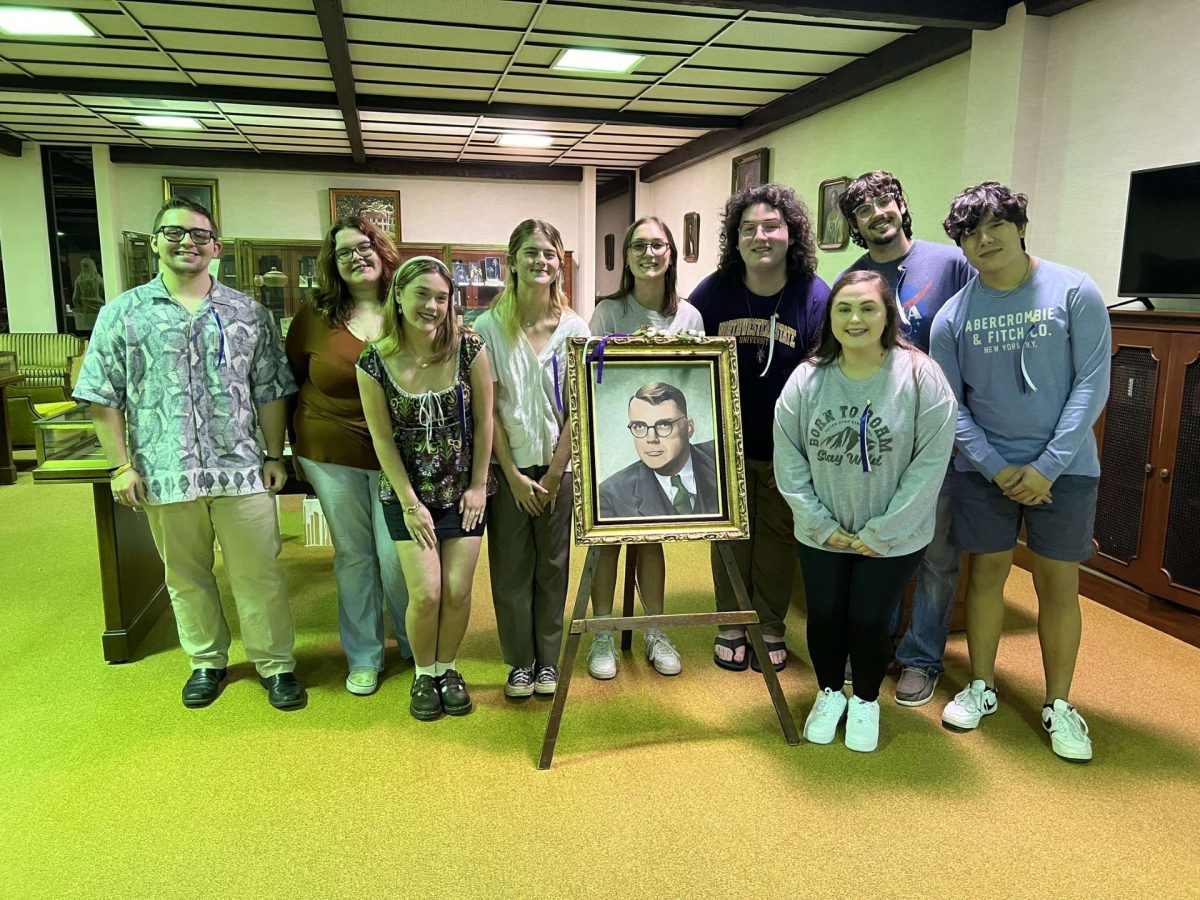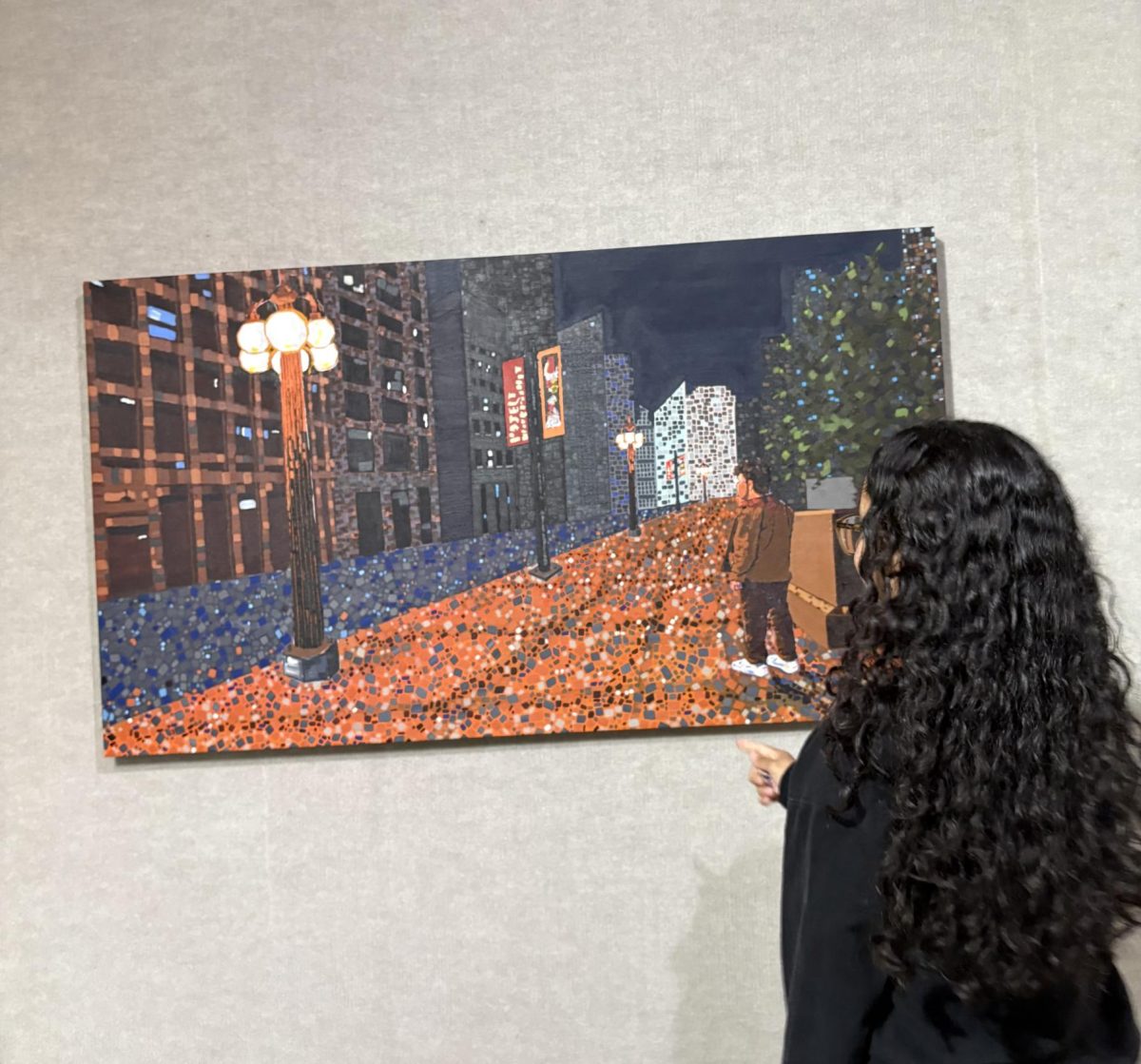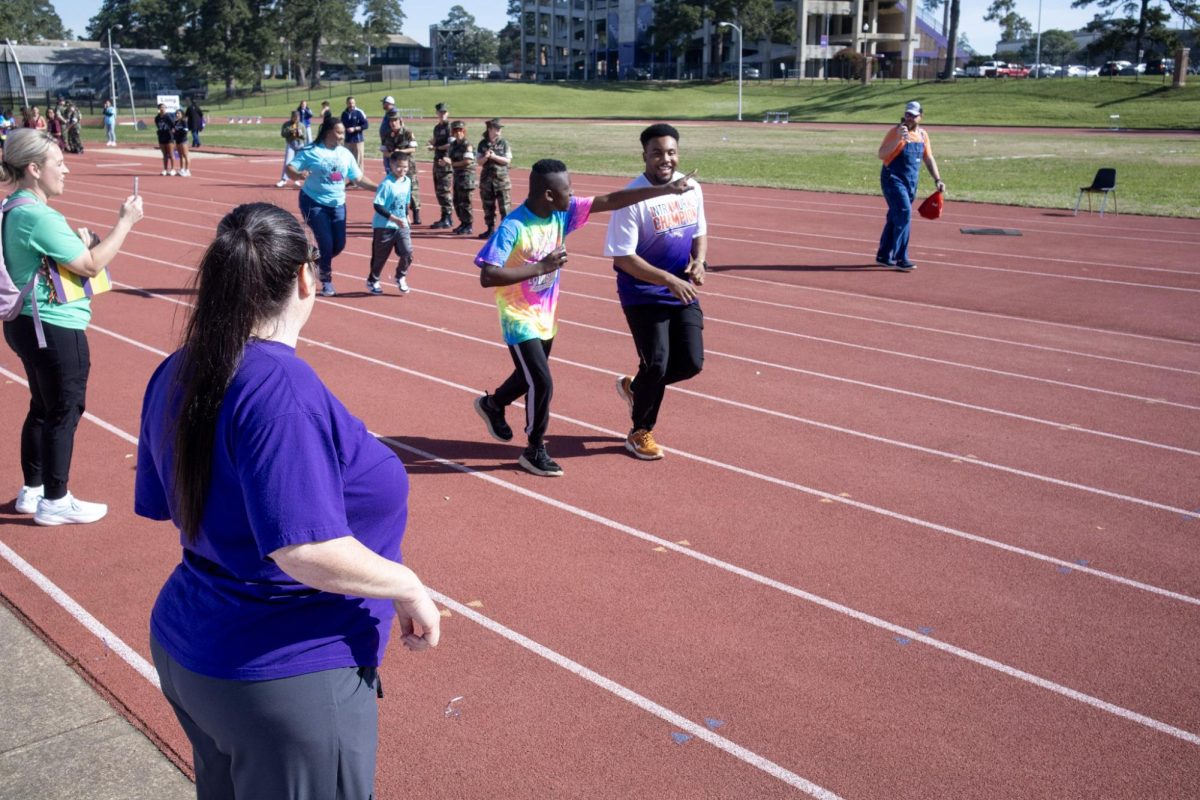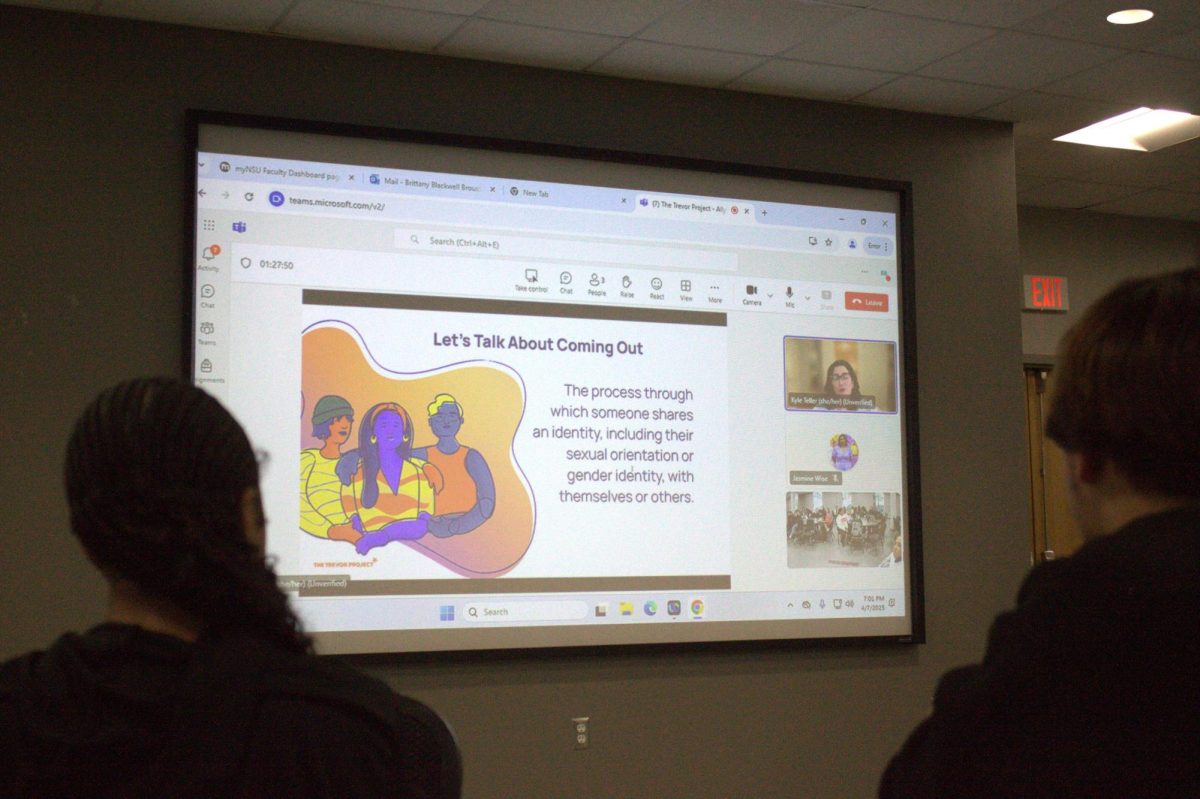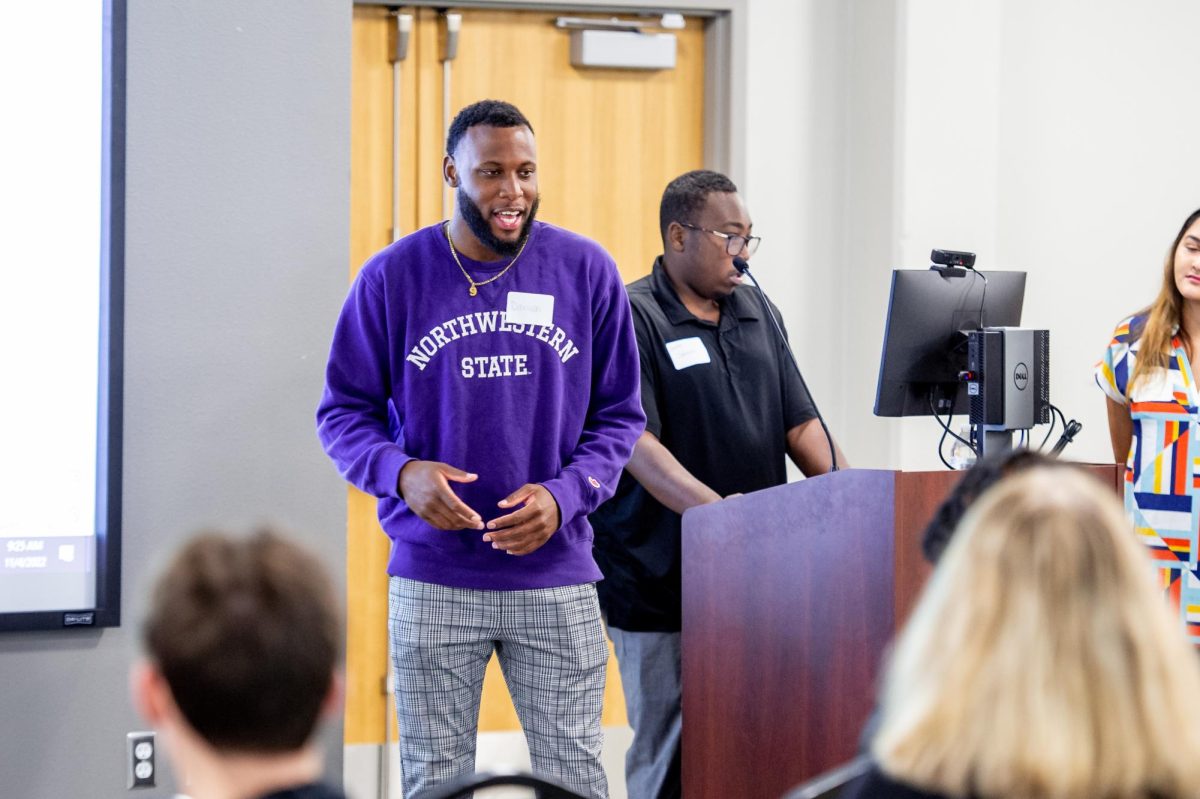Brianna Corley
Arts and Living Editor
In the emptied hallways of Kyser, JaKayla Lee stands outside the Students Services Office, rushed between signing paper-work, attending meetings and working jobs, always, always running.
“I feel like I have more to prove,” Lee said.
As a first-generation student entering her final year of NSU, Lee notes the incredible importance her family placed on her education and the undeniable pressures of being the first among them to experience university life.
Participating in work-study, 10 organizations and retaining an RA position for the last three years, she has used her efforts and energy on aiding other students in similar situations as a peer mentor in the Student Services Offices, a program which only hires first-generation students while also providing low-income and disabled students with services.
“I can relate to people’s struggle,” Lee said. “A lot of first-generation students are on their own. They don’t have people to help them with financial aid, and they don’t understand you have to pay for housing every semester. I feel like having a community like Student Support Services and having other people really helps.”
Lee said that being a first-generation student has ingrained itself so far into her identity that it affected her choice of major.
As a statistic who has proven the odds wrong, Lee wants to use the practice of law to help others who are viewed as statistics and remind them they are “so much more than a number.”
While believing that various groups on campus do cultivate a sense of community among first-generation students, Lee thinks there may be a disconnect between NSU and its first-generation students.
“I feel the university may not realize the struggles first generation students do have because a lot of the people who run NSU are legacy students,” Lee said. “It’s generations and generations that have gone to NSU that may not necessarily understand the need for programs to help first-generation students.”
Lee said services for first-generation students could include a special adviser at all Freshman Connection sessions to provide students with the sense they are not alone.
“It’s not about what you know, but it’s about who you know,” Lee said. “At the end of the day life is what you make it. Anything worth having is worth working for.”
Lee views NSU as particularly endearing to first-generation and nontraditional college students for its size and structure because it is not intimidatingly large, and students can easily meet new people.
Dexter Humphries, a junior and nontraditional student, shares the same sentiment.
“When I graduated, I didn’t go straight to college,” Humphries said. “I actually worked for a while. College just wasn’t on my mind.”
Humphries said that joining the workforce was what ultimately influenced his major, but the decision to begin college came from attending an event on campus friends had invited him to.
After realizing the sense of community among NSU students, he applied and began school the following semester.
“I always say invest in yourself first,” Humphries said. “And college is an investment.”
Humphries believed that as a university NSU could be better in extending itself to catch students’ interests through reaching out to high schools and truly explaining the depth of what college can offer.
“I don’t see them personally reaching out or keeping the students’ interests,” Humphries said. “If I’m coming out of high school and no one in my family has been to college, I need you keep my interest.”
However, Sheridan Duet, sophomore and first-generation student, believes that the university extends aid to all students with programs and engagement.
“I knew I wanted to do it,” Duet said. “I knew I had to do it, but it was how to do it.”
She recalled sitting in front of her computer and staring at the FASFA form for 30 minutes at a complete loss on what to do. Her parents couldn’t help her because they simply didn’t know how, and that was hard on them.
From that, an intense sense of doubt brewed, but NSU’s programs and offerings helped put her at ease.
“I actually attended the first-generation reception they held at the beginning of this year, and I got to talk to a lot of the new first-generation students,” Duet said.
Seeing the event hosted during Demon Days was a wonderful way to remind first-generation students they have a support system in the university.
Though Duet didn’t use many of the services that were offered, simply hearing the Student Services Office existed helped her adjust to college.
Duet said while the change from high school to college is hard for everyone, it is particularly jarring for first-generation students.
Despite their varying opinions, a sense of community exists between these students, and it has profoundly affected their college experience.
“It’s not something that everyone knows because obviously I don’t have a tag on my back saying first-generation,” Duet said. “When you have that bond over that, it makes you feel like you’re not alone.”





















